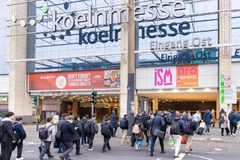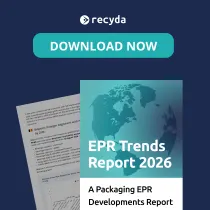McDonald’s and Burger King face class-action lawsuits in US over “forever chemicals” in packaging

05 May 2022 --- McDonald’s and Burger King are facing class-action lawsuits in the US for using PFAS chemicals in their packaging. The fast-food chains are accused of fraud, misrepresentation and false advertising for claiming the food they serve is safe. However, no specific examples of consumer harm are included in the lawsuits.
In March, Consumer Reports tested more than 100 packaging products from 24 large US restaurant chains and grocery stores, finding nearly half had at least one product with high PFAS levels in some items, including Arby’s, Burger King, Cava, Chick-fil-A, McDonald’s, Nathan’s and Sweetgreen.
In the same month, Burger King pledged to phase out PFAS from its packaging altogether by 2025, heeding long-established research by non-profits As You Saw and Toxic Free Future, which in 2020 published evidence suggesting PFAS is linked to cancer and birth defects.

The “forever chemicals” are widely used for their grease repellent properties in paper-based food packaging. However, the chemicals are extremely persistent, building up in the environment, drinking water, and human blood.
In early 2021, McDonald’s made a similar pledge to phase out all use of PFAS by 2025.
Burger wraps in the dock
These promises were not enough for litigators in the US, however, and on March 28, plaintiff Larry Clark in the court of Southern District of Illinois charged McDonald’s with exposing US consumers to high levels of PFAS.
 PFAS used as a grease barrier in fast food packaging is linked to serious diseases.In the complaint, Clark refers to a “host of health effects associated with PFAS” outlined by the Centers for Disease Control and Prevention, including cancer, liver damage, decreased fertility and increased risk of asthma and thyroid disease. In the complaint, Clark also charges McDonald’s with fraud and deceptive business practices and violation of its food-safety pledge.
PFAS used as a grease barrier in fast food packaging is linked to serious diseases.In the complaint, Clark refers to a “host of health effects associated with PFAS” outlined by the Centers for Disease Control and Prevention, including cancer, liver damage, decreased fertility and increased risk of asthma and thyroid disease. In the complaint, Clark also charges McDonald’s with fraud and deceptive business practices and violation of its food-safety pledge.
Similar allegations are made in a lawsuit filed on March 30 by plaintiff Ken McDowell in the District Court for the Northern District of Illinois.
Meanwhile, in April, plaintiff Azman Hussein sued Burger King in the US District Court for the Northern District of California with a similar complaint, pointing to the chain’s recent efforts to promote its use of “real ingredients” with “no secrets,” and environmentally sustainable packaging.
Action against chemicals
Last year, a US congress bill sought to ban PFAS in all F&B packaging nationwide, beginning in 2024. The bipartisan bill named the “Keep Food Containers Safe from PFAS Act” was introduced in the US Senate and House of Representatives.
If passed, the PFAS bill would take existing state prohibitions on PFAS chemicals nationwide. Currently, seven states – California, Connecticut, Maine, Minnesota, New York, Vermont and Washington – have passed laws banning PFAS in food packaging.
Recently, the EU released a “Restrictions Roadmap” that would outlaw the use of harmful chemical groups like PFAS, bisphenol and PVC by 2030. If passed into legislation, the move would impose blanket bans on groups of chemicals to prevent companies from circumventing the law by making minor chemical alterations to compounds, as is often done in industry.
The intensifying legislation against chemicals like PFAS, compared to tobacco and asbestos, will likely increase the number of lawsuits against major F&B packaging corporations, even as they pledge to reverse course voluntarily.
By Louis Gore-Langton











